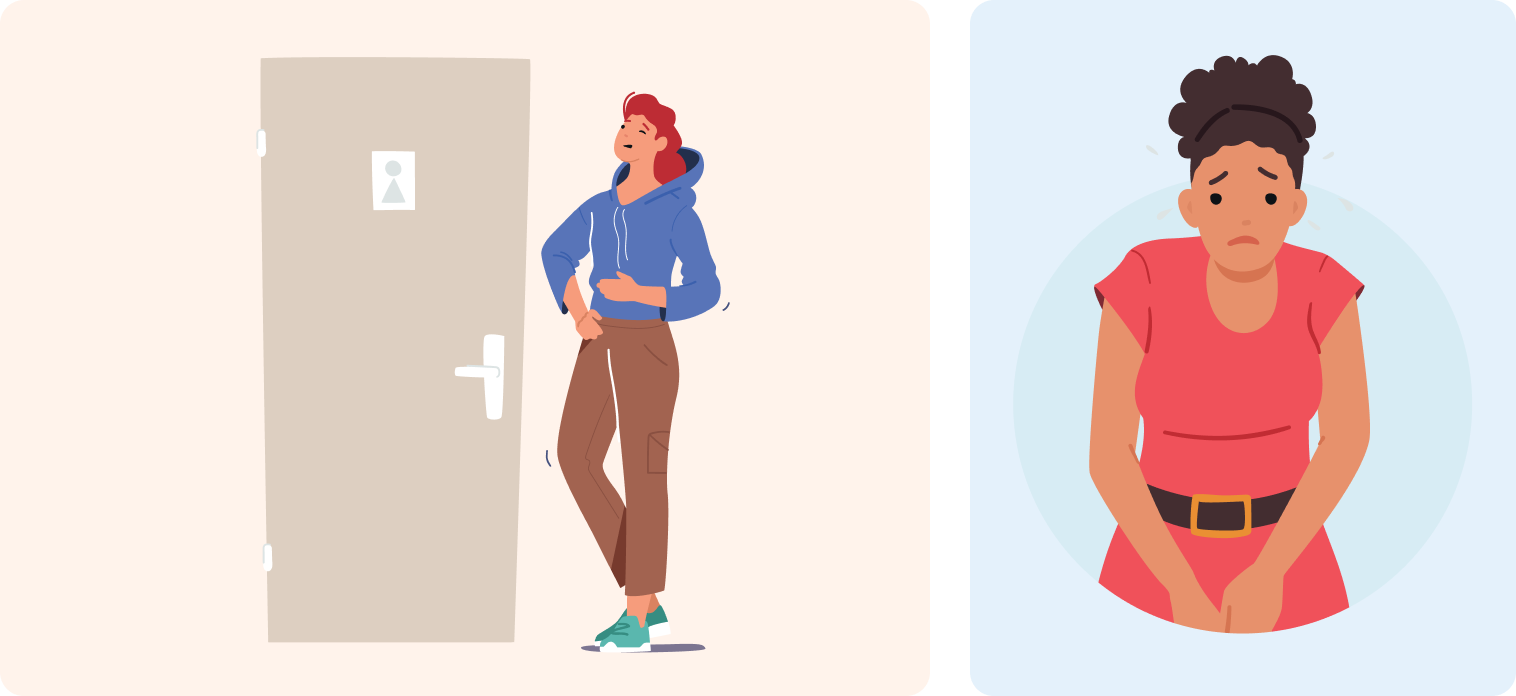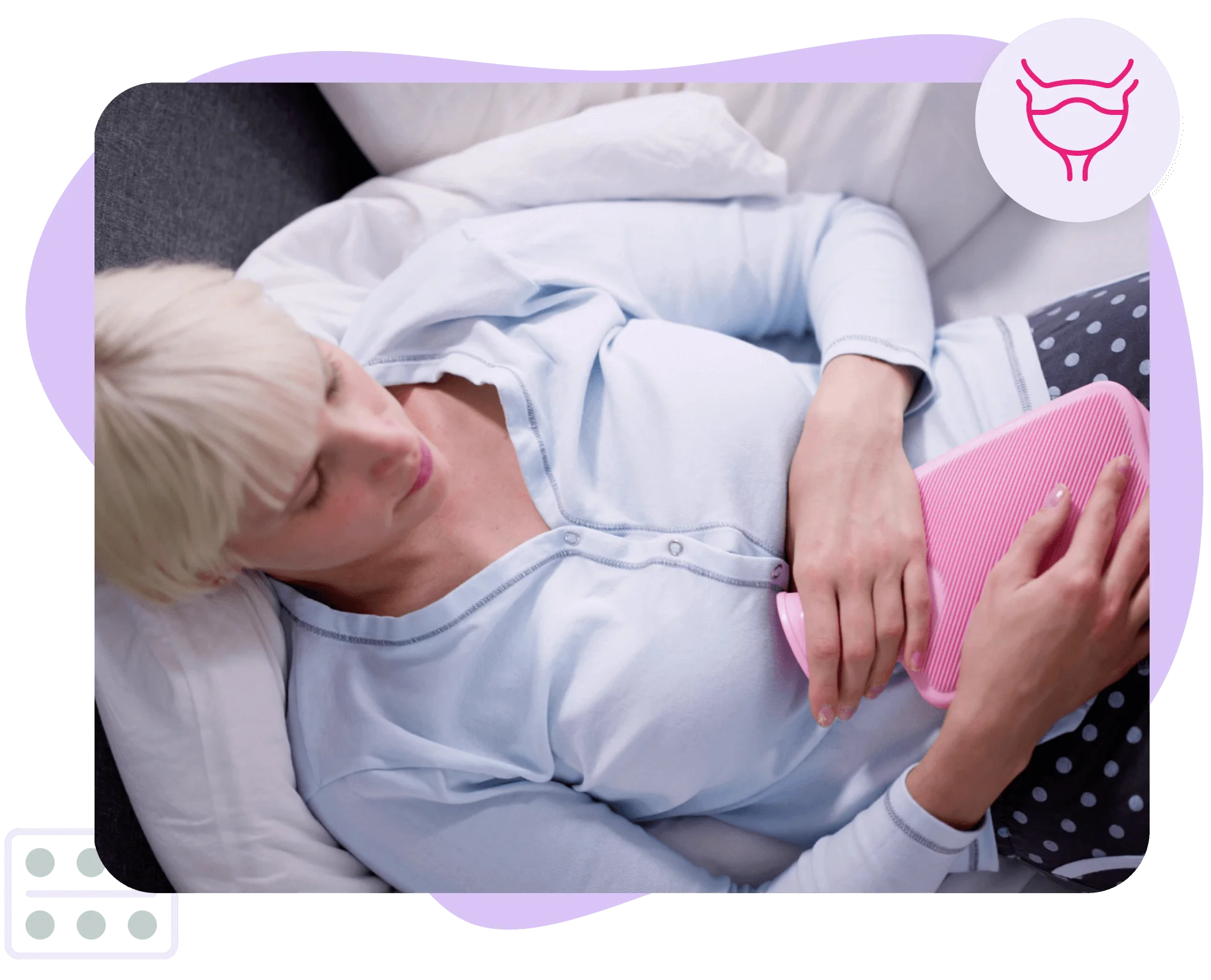Overview
A urinary tract infection (UTI) is an infection that affects any part of the urinary system, which includes the kidneys (Pyelonephritis), the bladder (Cystitis), and the urethra (Urethritis). Cystitis is the most common and is more likely to occur in women due to the female urethra being shorter and closer to the anus, which makes it easier for bacteria to reach the bladder.
This article focuses on cystitis and is what we are referring to when we say urinary tract infection moving forward.

Causes
The most common cause of a UTI is when the Escherichia coli (E. coli) bacteria near the anus (usually from poo) and enters the urethra, the tube that carries urine out of your body and causes and infection.
A UTI may occur as a reaction to:
- Female anatomy (shorter urethra)
- Certain drugs
- Radiation therapy
- Hygiene products
- Birth control such as diaphragms and spermicide jelly
- Long-term catheter (a tube in your bladder used to drain urine)
- Complication from another illness (such diabetes or an enlarged prostate gland)
- Transmission from another infection near the vagina (such as herpes, gonorrhea, chlamydia and mycoplasma)
- Infection from instruments used during another urinary procedure
- Having sex
- Being pregnant
- Menopause (decline in estrogen)
- A weakened immune system
- Catheter use
Symptoms
Having a UTI can be painful and annoying.
Common UTI symptoms to look out for:
- Pain or burning feeling during urination (Dysuria)
- Persistent need to urinate (more frequently than usual)
- Sudden and strong urges to urinate
- Mild to moderate lower abdominal pain
- Blood in your pee, which may cause it to appear pink or red. (Haematuria)
- Cloudy or bad-smelling urine
- Lower abdominal pain or pelvic discomfort
- Fatigue
In more extreme cases you might also experience:
- Confusion or agitation (delirium)
- Wetting yourself more than usual
- Low-grade fever, shivering or shaking (rigours)
Treatment
Treatment of UTIs typically involves taking antibiotics to eliminate the infection as promptly as possible because untreated infections can lead to more serious complications, such as kidney damage, if it spreads to the kidneys.
Chronic or recurrent (two or more infections in 6 months, or three or more infections in a year) UTIs may involve needing to take antibiotics for a long time.
To ease your pain symptoms, you may take paracetamol up to 4 times per day. Some people also report relief from potassium citrate sachets that reduce the acidity in the urine.
If you are a woman and need help with your UTI, a PillSorted pharmacist can provide you with advice and treatment online, without the need to visit your GP. This is a free service as part of the UK’s Pharmacy First program.
PillSorted provides advice & NHS-funded treatment for urinary tract infections (UTIs) in women. Book an appointment now if you would like a consultation.

Preventative measures
To avoid getting a UTI in the first place, stay well-hydrated, practice good hygiene, urinate after sexual activity, and avoid irritating feminine products or excessive use of certain contraceptives.
FAQ
Can cranberry juice cure a UTI?
Cranberry juice is not a recommended substitute for medical treatment and there is no evidence that it helps ease symptoms or treat UTIs after they have already started.
How can I prevent a UTI?
Yes, but they are less common. UTIs in men often indicate an underlying issue, such as an enlarged prostate or kidney stones.
Can men get UTIs?
You may not be able to prevent all UTIs. But getting rest and staying well-hydrated are key to helping you prevent getting one. You should also practice good hygiene, urinate after sexual activity, avoid irritating feminine products, and wear breathable underwear.





























